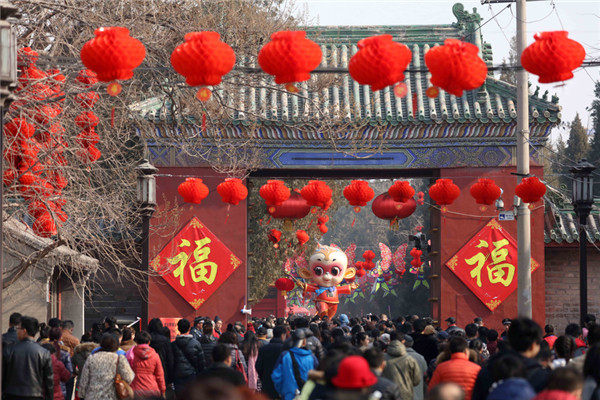

 |
|
Tourists visit the 2016 Beijing Ditan Temple Fair. [Photo/VCG] |
The tradition of a "temple fair" (Miao Hui) began as groups of vendors started doing business near Buddhist and Taoist temples as many pilgrims came to pay tribute to the gods during traditional festivals. The practice grew, gradually becoming a regular event. Now temple fairs are an important and joyful destination for Chinese people during festivals, particularly the Spring Festival, or Chinese New Year.
Temple fairs in Beijing have a very long history, dating back to around 1000 AD, when they were called "Spring Outings," and saw a boom especially during the Ming and Qing dynasties (1368-1911) as well as the Republic of China (1912-1949). Major temples each have their own festivals, some of which are held regularly.
During the Spring Festival, the temple fair is one of the most important activities, and a traditional cultural event that features all kinds of Chinese folk art. So far, there have been more than 10 major temple fairs held each year in Beijing.
Performances and booths demonstrating and selling traditional arts and crafts are found in Beijing's traditional temple fairs. The fairs have lots of games to play, food to eat and performances to see, which attract lots of people. During temple fairs you can taste numerous kinds of local snacks and other dishes.
Most temple fairs feature dragon and lion dances, waist drum dancing, lotus blossom fairy dances, ground and clam dancing, as well as other folk performances, and some even stage traditional wedding ceremonies.
For foreigners, a temple fair is definitely a cultural experience because they can see the details of Chinese cultures. While enjoying samples of Chinese delicacies, you can appreciate craftsmanship and artworks displayed by local artisans.
Nowadays, going to temple fairs has become a Spring Festival routine for Beijing residents.